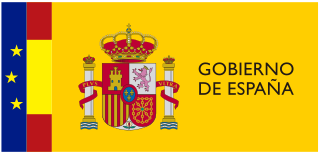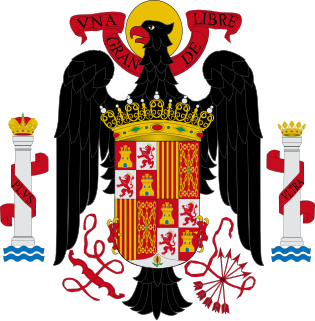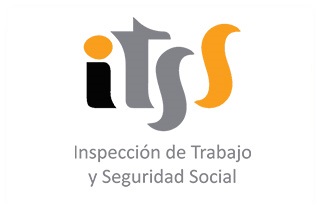| Name | Chair | Deputy Chair | Scope |
|---|
| Defence [2] | The Secretary-General for Defence Policy | The Director-General for Defence Policy | To prepare the meetings of the National Defence Council and execute its decisions and to prepare the defence resources in case of crisis. |
| European Union Affairs [3] | The Secretary of State for the European Union | The Secretary of State for Economy and Business | To coordinate the Administration action in the EU and to resolve inter-ministerial issues, mainly of economic nature. |
| Immigration Affairs [4] | The Secretary of State for Migration | | To consider issues relating on immigration and the right of asylum and to make studies and reports about the European and national migration policy and its consequences. |
| Tourism [5] | The Minister of Industry, Trade and Tourism | The Secretary of State for Tourism | To consider issues relating on tourism. |
| Statistics [6] | The President of the National Statistics Institute | | To consider issues relating statistics and support the Superior Council of Statistics. |
| Medicine Prices | The Secretary-General for Health and Consumer Affairs | The Director-General for the Basic Portfolio of Services of the NHS and Pharmacy | To establish the maximum prize of medicines offered by the National Health System and to consider matters about state-finance medicines. |
| Equality between Women and Men | The Minister of the Presidency, Relations with the Cortes and Equality | The Secretary of State for Equality | To oversee the integration of the principle of Equal Treatment within the Administration as well as coordinating the different department policies on equality and eradication of violence against women. |
| Monitoring the Measures Adopted by the Congress' Defense Committee | The Minister of Defence | The Under Secretary of Defence | To consider matter relating the measures adopted by the Defence Committee of the Congress of Deputies as wells as improving the exchange of information between departments. |
| Implementation of BIM | The Under Secretary of Development | The Director-General for State Heritage | To coordinate the implementation of the Building Information Modelling' methodology. |
| Climate Change and Energy Transition | The Minister for the Ecological Transition | The Secretary of State for Economy and Business | To coordinate the actions on the National Plan for Energy and Climate, on decarbonization, on just transition and on the elaboration of the Climate Change and Energy Transition Draft Bill. |
| Ecological Criteria in Public Hiring | The Under Secretary for the Ecological Transition | The Director-General for State Heritage | To coordinate the State Administration bodies and agencies in order to integrate an ecological criteria in public hiring. |
| Social Criteria in Public Hiring | The Secretary of State for Social Services | The Director-General for State Heritage | To coordinate the State Administration bodies and agencies in order to integrate a social criteria in public hiring. |
| Marine Strategies | The Secretary of State for Environment | The Director-General for Sustainability of the Coast and the Sea | To share and analyze common information about marine environment and to control and propose the marine strategies. |
| Coordination of the State Peripheral Administration | The Minister of Territorial Policy and Civil Service | The Secretary of State for Territorial Policy | To coordinate the Peripheral Administration and to facilitate the exchange of information. |
| Evaluation and Accreditation of Professional Competences Acquired by Work Experience | Director-General of the Public State Employment Service/Director General for Vocational Training | Director-General of the Public State Employment Service/Director General for Vocational Training | To evaluate and boost the requirements applied by the Administrations to recognize the experience acquired by work and not just by study. |
| National Action Plan for Social Inclusion | The Minister of Labour | The Secretary of State for Social Services | To consider European or national matters relating social inclusion and social protection. |
| Treaties and Other International Agreements | | | To coordinate the State, the regions and the autonomous cities of Ceuta and Melilla in the compliance with international treaties. |
| International Cooperation | The Secretary of State for International Cooperation | The Director-General for Sustainable Development Policies | To coordinate the international cooperation policies of the different administrations and elaborate the Master Plan and the Annual Plan about this matters. |
| International Aerospace Policy | The Secretary of State for Foreign Affairs | Under Secretary of Development | To advise the Government on international aviation and space policy. |
| International Maritime Policy | The Secretary of State for Foreign Affairs | Under Secretary of Development | To advise the Government on maritime issues relevant to Spain. |
| Weapons and Explosives [7] | The Technical Secretary-General of the Ministry of the Interior | The Deputy Technical Secretary-General of the Ministry of the Interior | To consider issues relating the weapons and explosives regulation. |
| National Plan for Preventive Actions against the Effects of Excess Temperatures on Health [8] | The Director-General for Public Health, Quality and Innovation | | To consider preventive actions and strategies to ensure a proper application of the National Plan for Preventive Actions against the Effects of Excess Temperatures on Health. |
| Coordination of Cultural 1% [9] | The Minister of Culture and Sport | | To establish the conservation plans financed by the 1% legal tax on every public work destined to the conservation of the Spanish historical heritage. |
| Rural Environment [10] | The Minister for the Ecological Transition | | To consider issues relating rural development. |
| Coordination of the Defence and Development Ministries [11] | The Chief of the Operations Division of the Air Force Staff | The Technical Secretary-General of the Ministry of the Development | To consider all aire-related matters involving both ministries. |
| Steel Structures [12] | The Technical Secretary-General of the Ministry of the Development | | To consider matters relating to the use of steel on infraestructures. |
| Concrete [13] | The Technical Secretary-General of the Ministry of the Development | | To consider matters relating to Concrete or prefabricated related materials. |
| Coordination of the Transport of Perishable Goods [14] | The Under Secretary of Development | | To consider issues relating the transportation of perishable goods and to serve as a connection port between the international organizations and the national administrations. |
| National Climate Council [15] | The Minister for the Ecological Transition | The Secretary of State for Climate Change | To make recommendations about the government policy on climate change. |
| Follow-up of the UK withdrawal from the EU | The Deputy Prime Minister | | Created in 2016 to follow up all the matters relating the UK withdrawal from the EU. |











